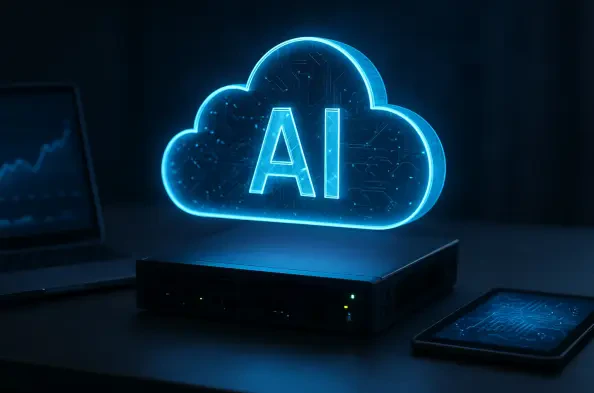What if the biggest barrier to artificial intelligence transforming businesses wasn’t the technology itself, but the chaos of disconnected systems? In 2025, enterprises are spending billions on AI, yet a staggering 74% struggle to see real value, bogged down by integration nightmares and unable to make their systems work together seamlessly. Picture a company with cutting-edge AI tools that can’t communicate with its CRM or supply chain software—potential squandered in a digital Tower of Babel. Enter the Model Context Protocol (MCP), a game-changing standard that promises to unify this fractured landscape, turning AI from a scattered experiment into a seamless operational force.
The significance of MCP cannot be overstated in an era where digital transformation dictates competitive survival. Much like USB-C became the universal connector for devices, MCP offers a standardized interface for AI to interact with diverse business systems, from payroll to analytics. This isn’t just about simplifying technology—it’s about redefining how companies operate, slashing integration costs, and accelerating returns on investment. As major tech giants rally behind this protocol, the stage is set for a revolution in enterprise AI integration.
The Silent Crisis in Enterprise AI
Beneath the hype of AI’s promise lies a harsh reality: most businesses are trapped in a cycle of disconnected tools. A 2024 survey by BCG revealed that nearly three-quarters of companies fail to extract meaningful outcomes from their AI initiatives, not due to poor algorithms, but because systems can’t communicate effectively. This fragmentation means that even the most advanced AI struggles to impact operations at scale, leaving executives frustrated and investments underperforming.
The challenge spans industries, from retail to manufacturing, where CRMs, ERPs, and supply chain platforms operate in silos. Without a unified way to bridge these gaps, AI remains a niche tool rather than a transformative engine. The urgency to solve this issue grows as competitors who crack the integration code gain a decisive edge in efficiency and innovation.
MCP: A Universal Key to AI Connectivity
At its core, MCP serves as a universal translator for enterprise systems, enabling AI agents to interact with platforms like Salesforce, SAP, and Google Workspace without the need for custom-built integrations. This standardized connectivity eliminates the costly patchwork solutions that dominate today’s setups. Businesses no longer need to wrestle with incompatible tools; instead, MCP creates a fluid digital ecosystem where data and actions flow effortlessly.
Beyond basic connections, MCP empowers AI to evolve from simple task automation to intelligent orchestration. Consider a scenario where an AI agent detects a supply chain delay, updates inventory in SAP, and notifies customers via Salesforce—all autonomously. Such capabilities mark a leap from isolated functions to cohesive workflows, amplifying operational impact across departments.
Reviving Legacy Systems with Modern Power
One of MCP’s most compelling benefits is its ability to breathe new life into aging technology. Many enterprises rely on legacy CRMs and ERPs that predate modern AI, creating a barrier to innovation. MCP addresses this by integrating these systems with lightweight adapters and modern APIs, making them AI-accessible without the expense of a full overhaul.
This approach maximizes existing investments, a critical factor for mid-sized firms with constrained budgets. A practical example comes from a regional retailer that used MCP to link its outdated inventory system with AI-driven analytics, cutting operational delays by 30%. Such outcomes demonstrate how MCP bridges the old and new, ensuring no company is left behind in the AI race.
Industry Titans Embrace the Standard
The credibility of MCP is reinforced by its adoption among tech heavyweights. OpenAI has embedded MCP into ChatGPT and its APIs this year, while Salesforce integrated it into Agentforce for no-code connectivity solutions. Oracle’s addition of MCP server support for database integration further cements its status as an industry standard, signaling broad trust in its potential.
Expert voices echo this momentum. Alessio Alionço, CEO of Pipefy, calls MCP “a linchpin for turning AI from a siloed experiment into a unified strategy.” These endorsements, combined with real-world applications, paint a picture of a protocol poised to become the backbone of enterprise AI, driving scalability and measurable results.
Charting a Path to MCP Adoption
For businesses ready to harness MCP, the journey begins with a clear roadmap. Start by auditing the current tech stack to pinpoint integration pain points, focusing on areas where AI could deliver immediate value if connectivity barriers were removed. This assessment lays the groundwork for targeted implementation, avoiding unnecessary disruption.
Next, collaboration with MCP-compatible platforms is key—vendors like Salesforce and OpenAI already offer robust support. Launching a small-scale pilot, such as linking a legacy ERP to an AI forecasting tool, allows for testing and refinement before broader rollout. Equipping teams with training on MCP’s framework ensures smooth adoption, while planning for future AI advancements keeps infrastructure adaptable. These steps transform fragmented systems into a streamlined, AI-powered ecosystem, positioning companies at the forefront of innovation.
Reflecting on a Transformative Shift
Looking back, the emergence of MCP marked a turning point for enterprise AI, addressing the deep-rooted issue of system fragmentation with a bold, standardized solution. Its ability to unify diverse platforms and empower AI as an operational force reshaped how businesses approached technology integration. The support from industry leaders and tangible early successes underscored its impact, setting a new benchmark for efficiency.
As companies moved forward, the focus shifted to actionable strategies—auditing systems, partnering with compatible vendors, and scaling pilots became critical next steps. Beyond immediate gains, MCP opened doors to future innovations, urging enterprises to stay agile in a fast-evolving landscape. This revolution wasn’t just a technical fix; it laid the foundation for a smarter, more connected way of doing business.






